Transient Dormitories in Singapore Waters
An antifragile way of building future migrant worker dormitories.
Context
The appalling living conditions of migrant workers in Singapore came under the spotlight during the COVID-19 pandemic. The government’s response was to build new purpose-built dormitories – 11 dormitories that could house up to 100 000 workers – in order to reduce the density in existing dormitories.
While the de-densification and efforts to improve the living standards of workers are necessary, the thesis posits that building more dormitories is not enough to build the country’s resilience against future global crises. Beyond improving dormitory standards, the country should also take this opportunity to rethink its unhealthy reliance on migrant labour.
Proposed Dorm+Fish Farm
In this thesis, a floating dormitory typology that is integrated with fish production facilities is proposed. As the country expands its coastal fish farms in the surrounding waters as part of a longer-term goal to increase its local food production capacity, the dormitories are built on top of these coastal fish farms such that they neither consume additional space on land nor in the sea. The new typology allows for future conversions into 100% fish farms when the country eventually reduces its reliance on migrant labour and when there is a lesser demand for migrant worker accommodations in the future. It is a metaphor to suggest that the dormitories are transient just as the migrant workers.
The scheme also explores possible symbiotic relationships between dormitory operations and aquaculture operations, and shows the advantages that floating dormitories have over conventional dormitories that are built on land.
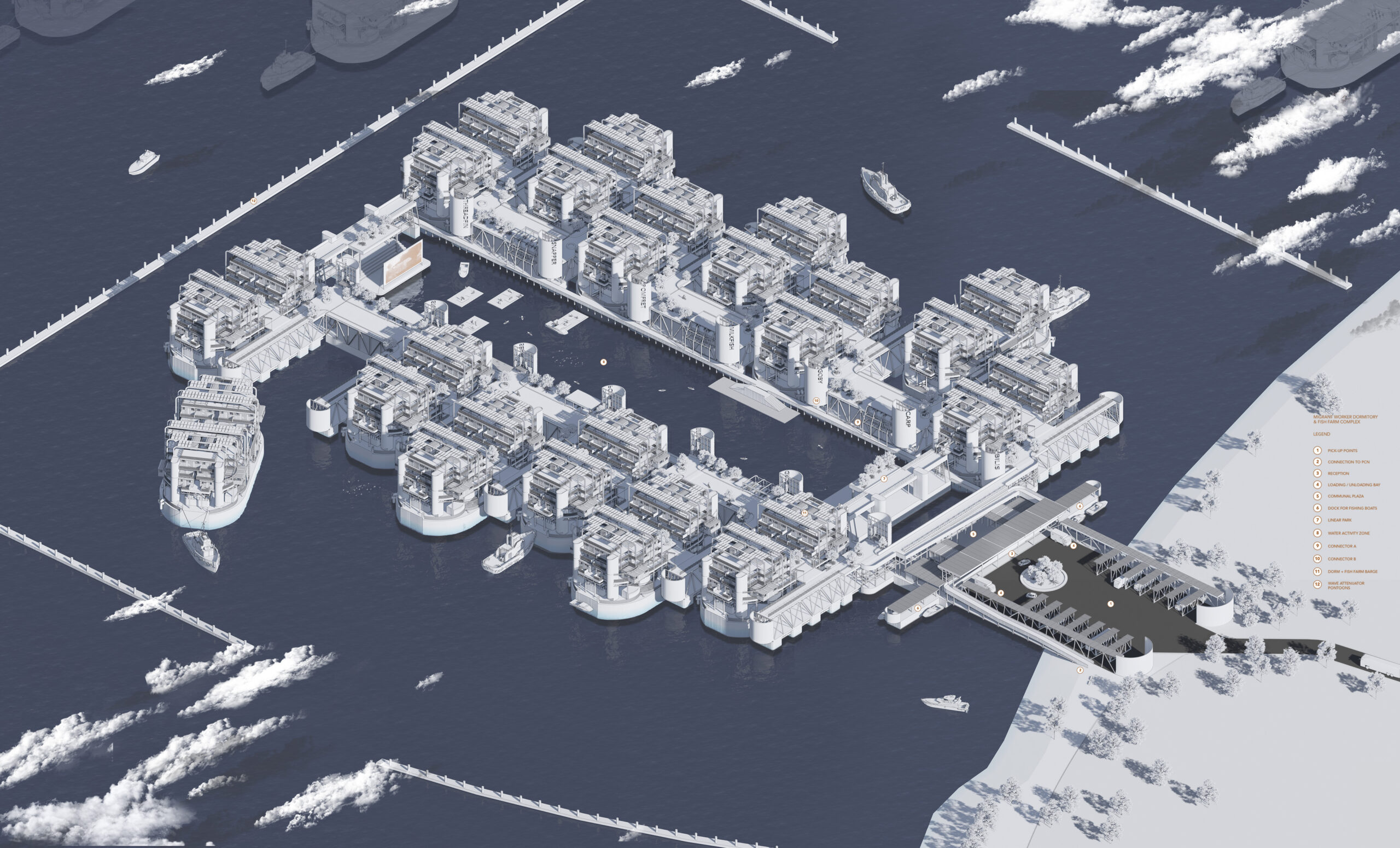
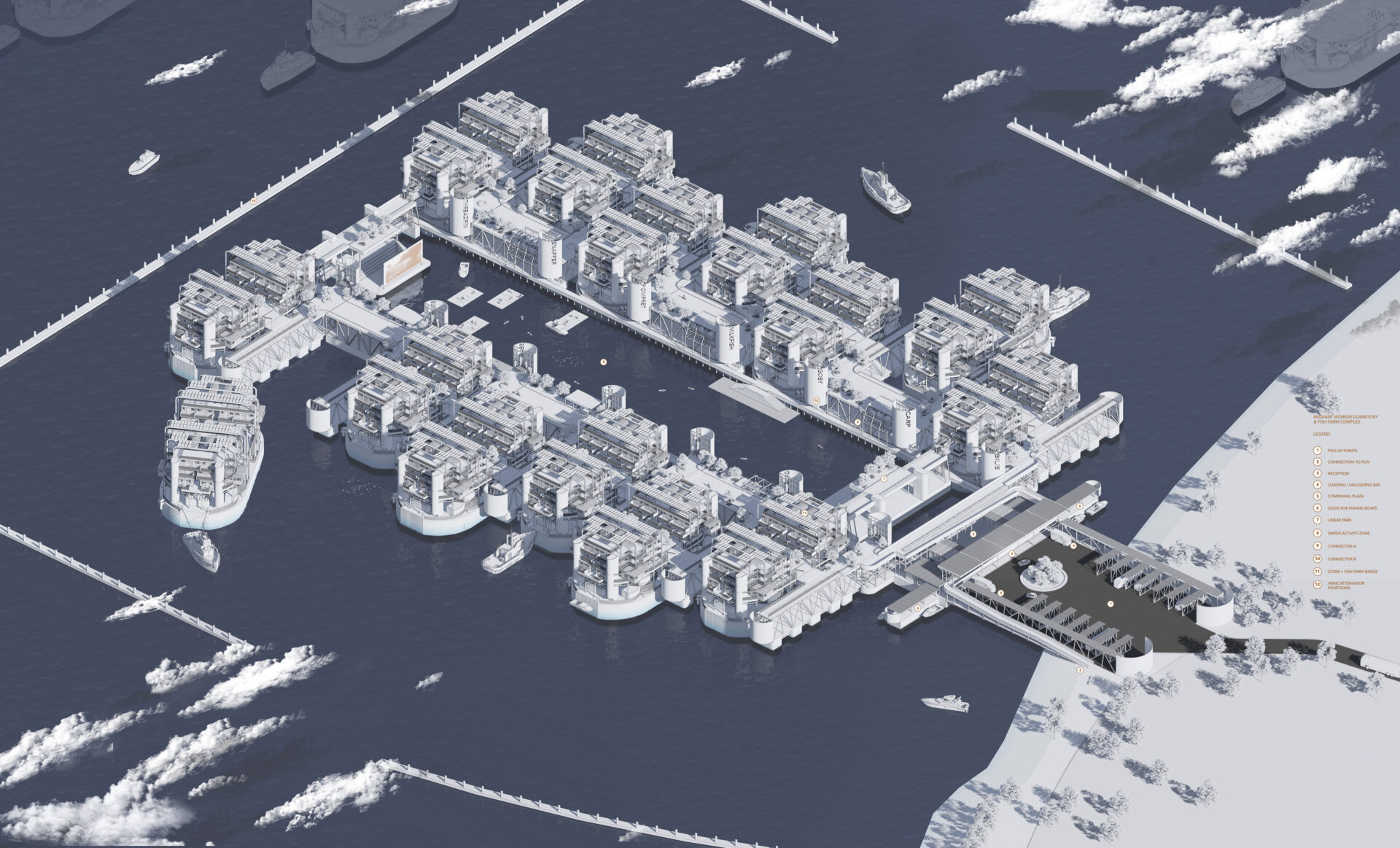
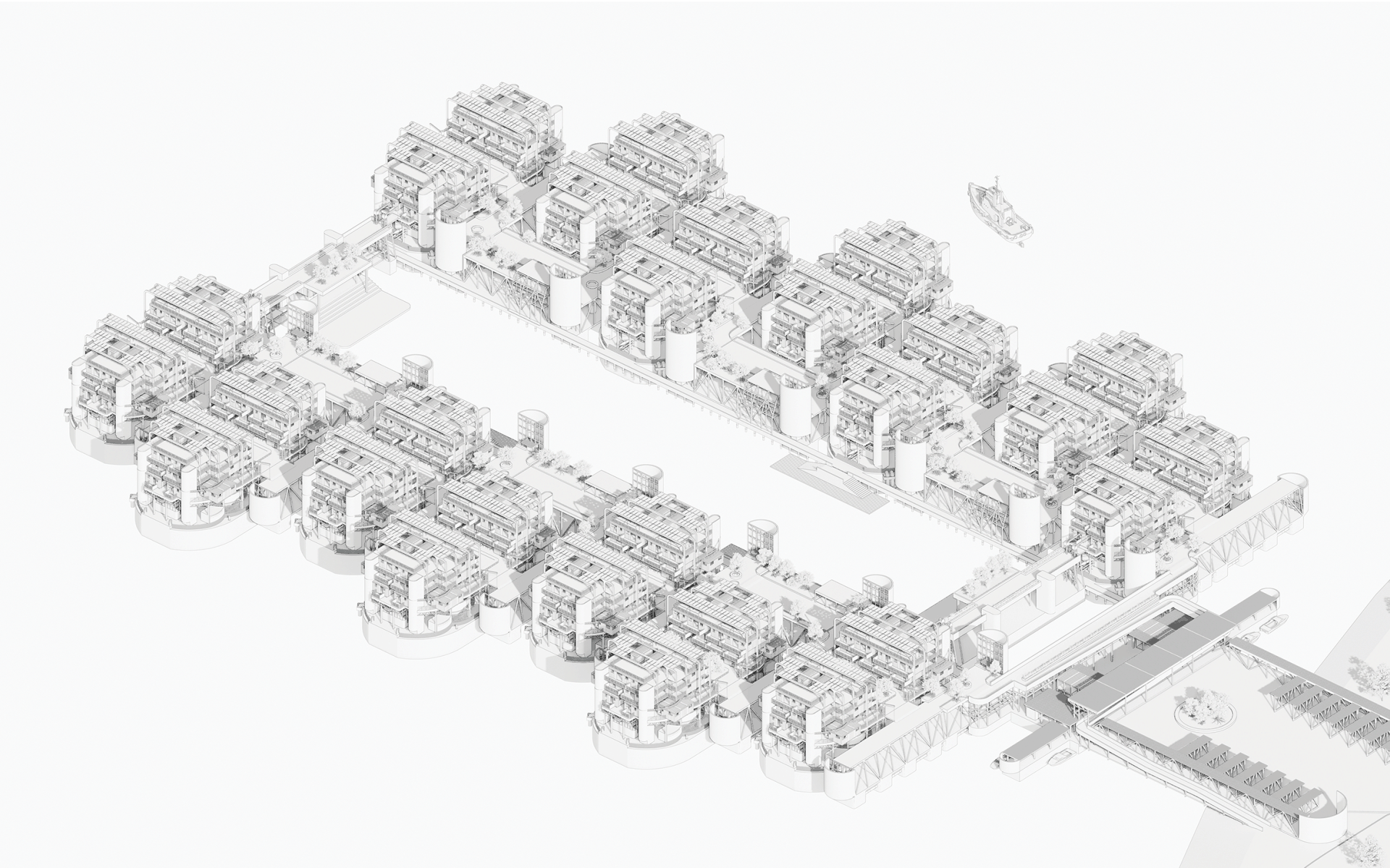
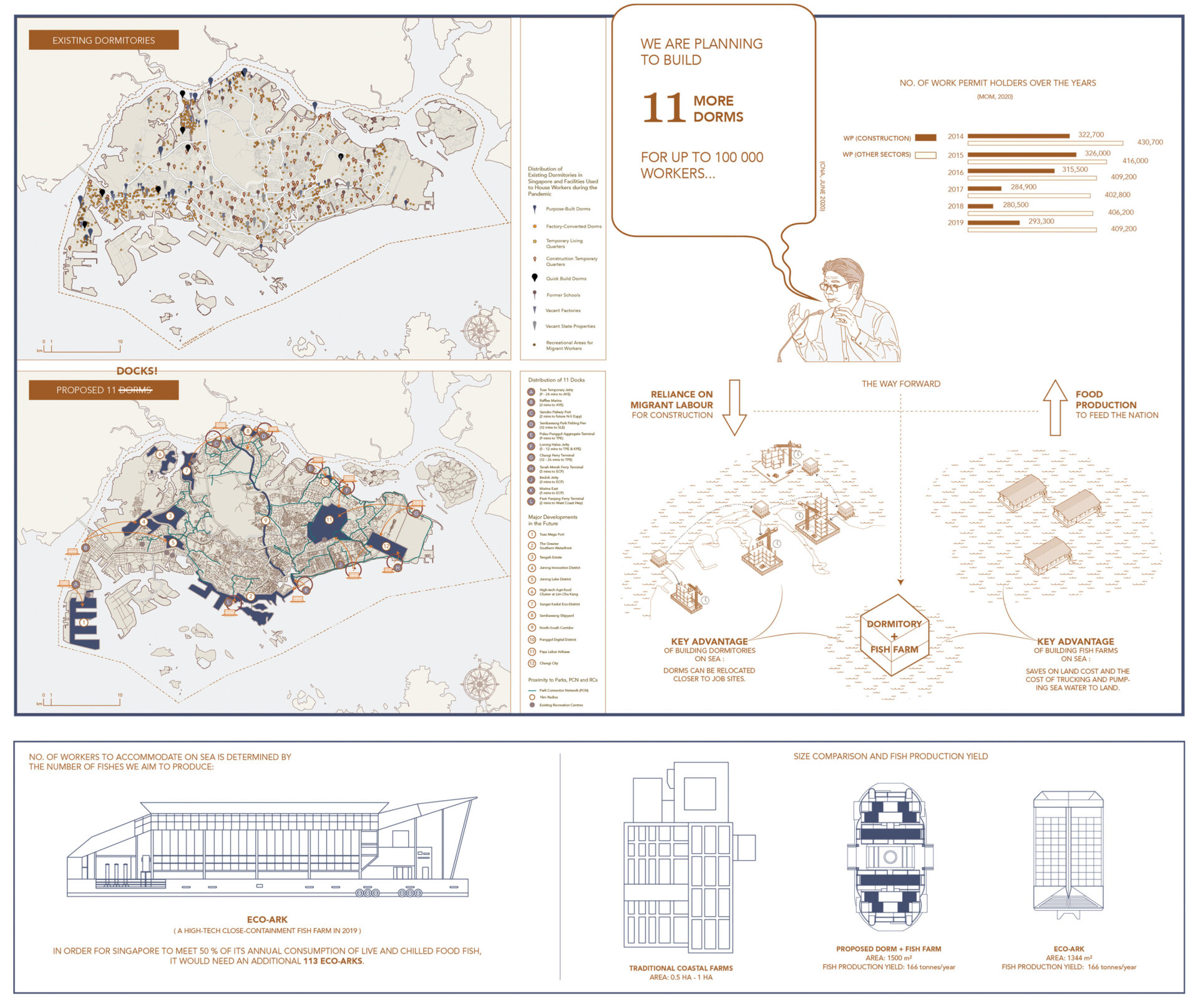
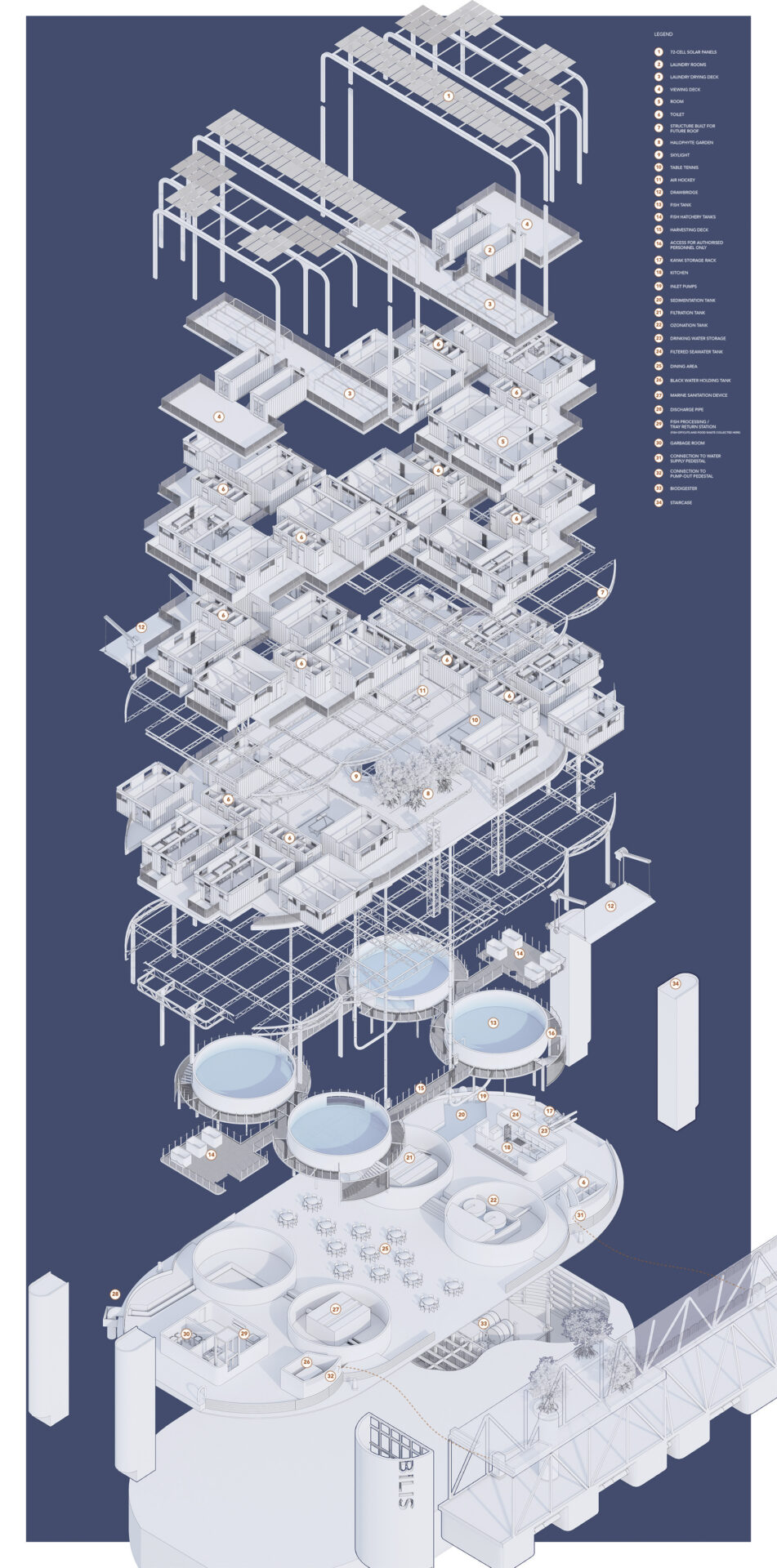
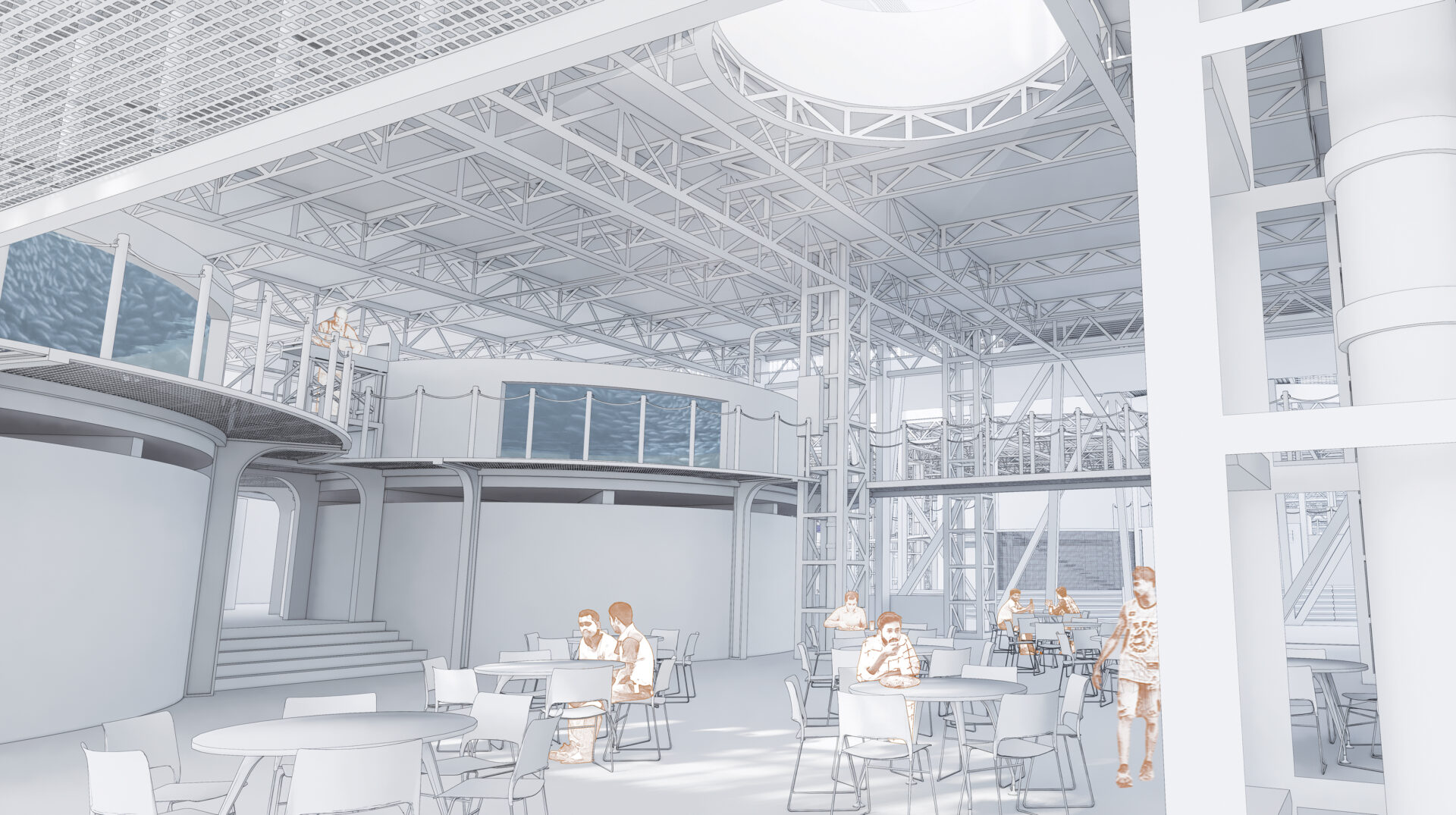
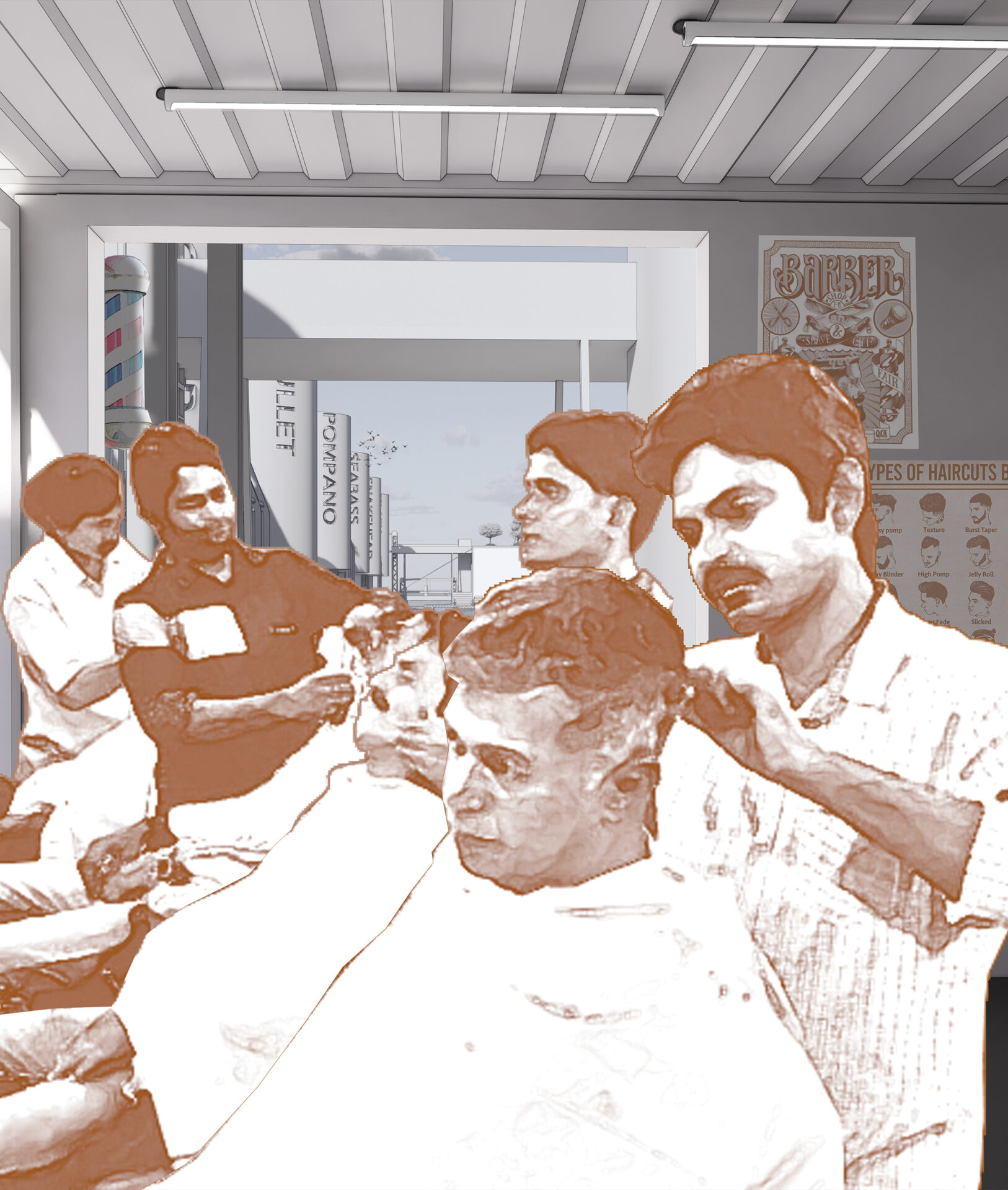
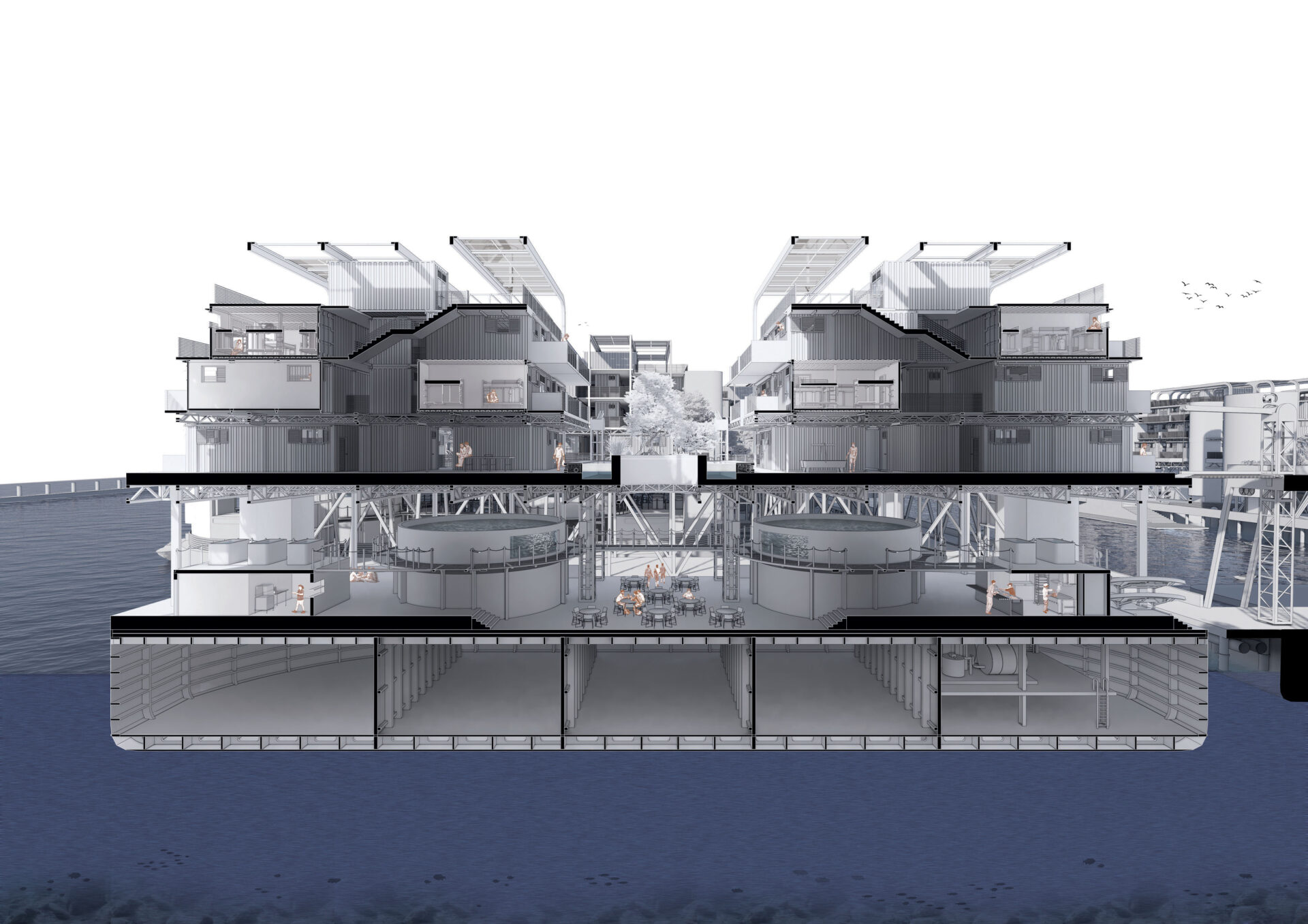
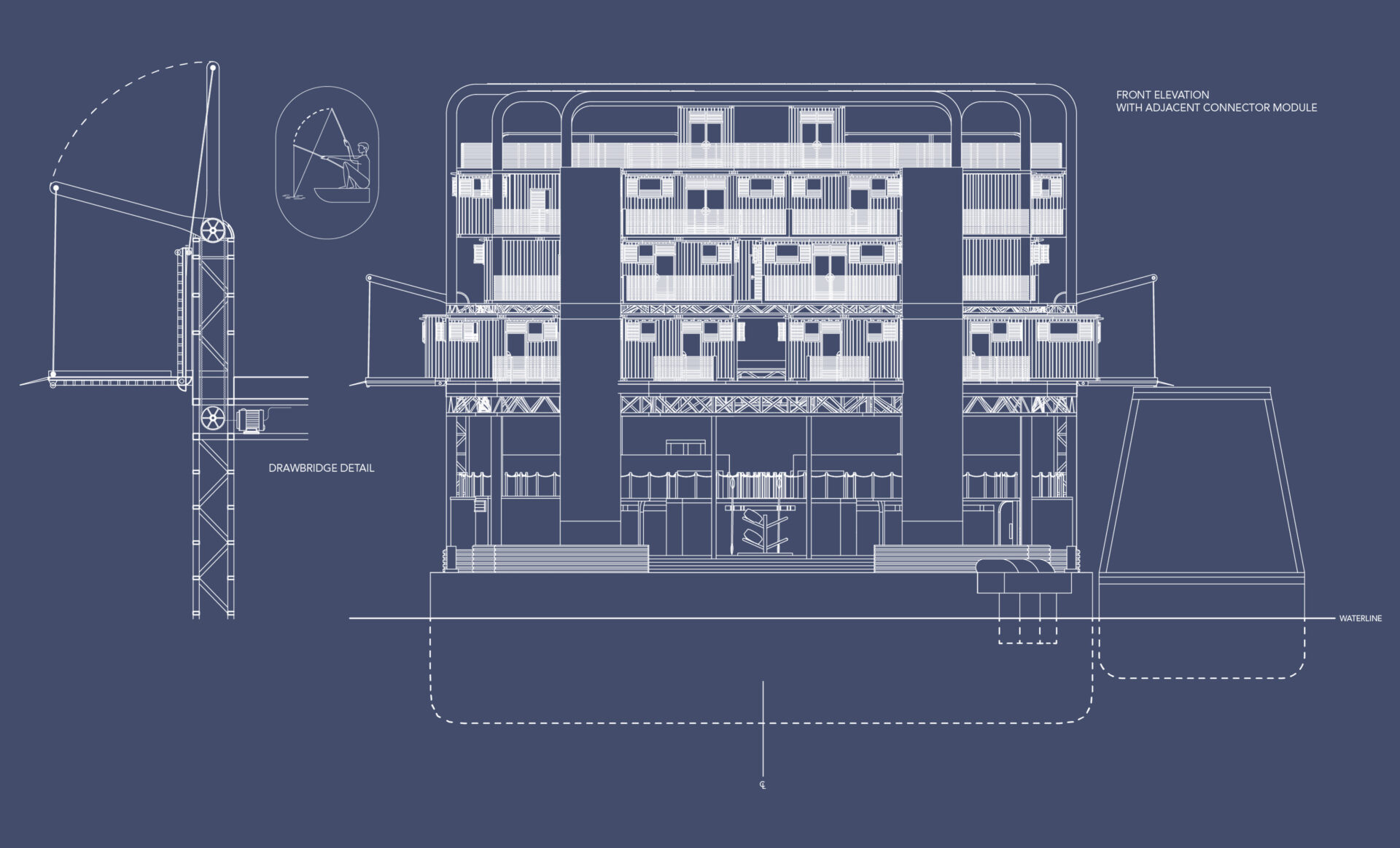
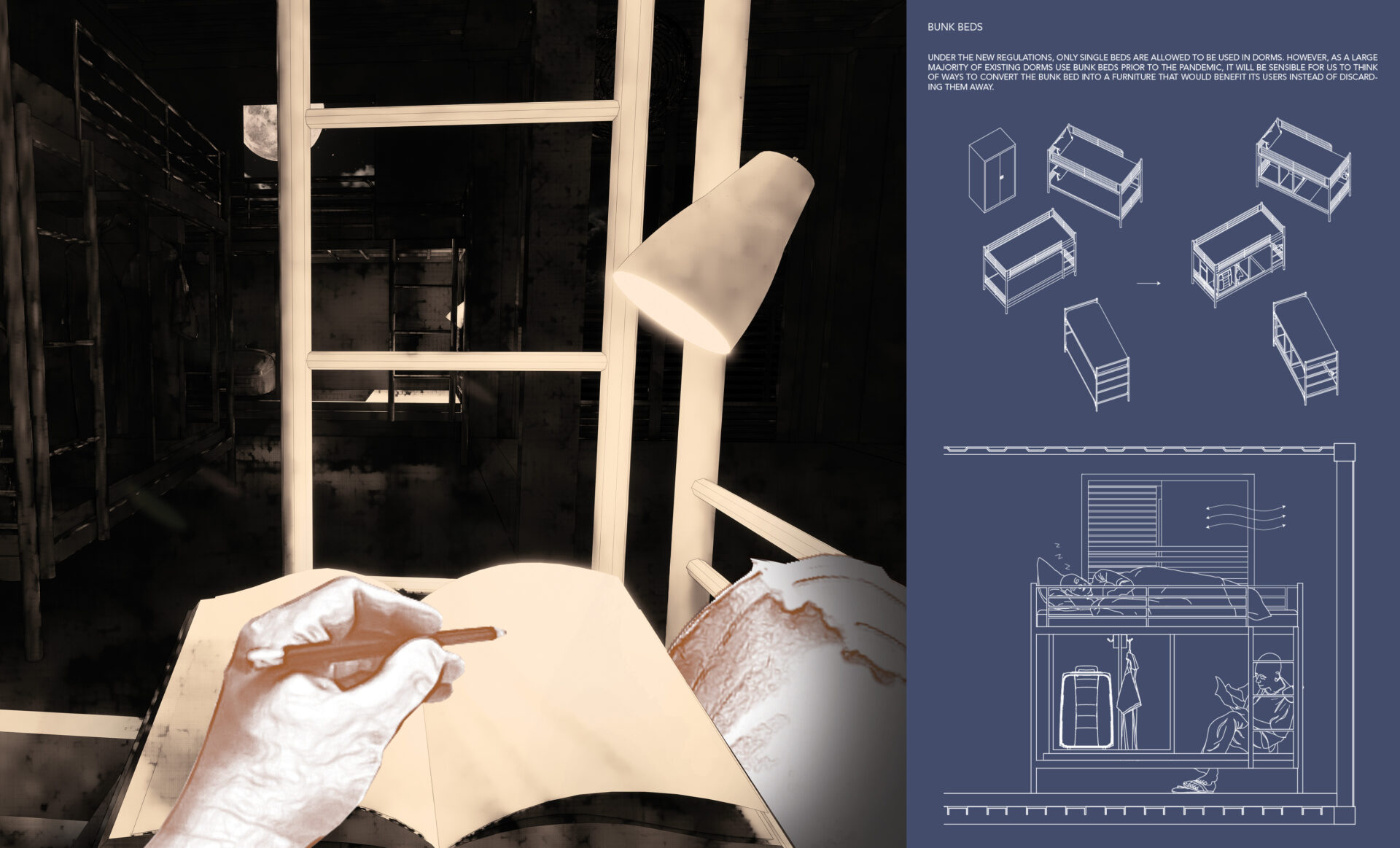
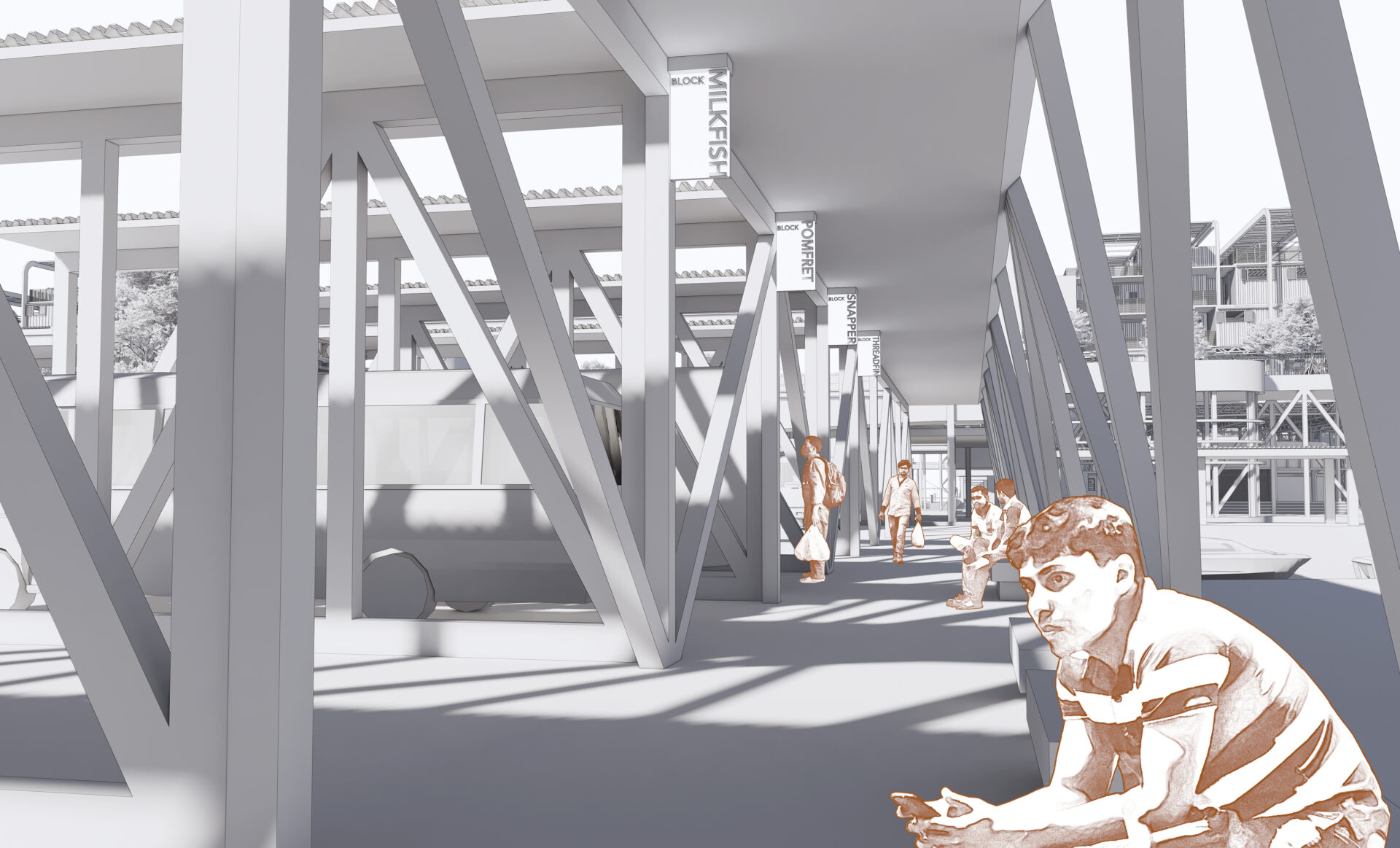
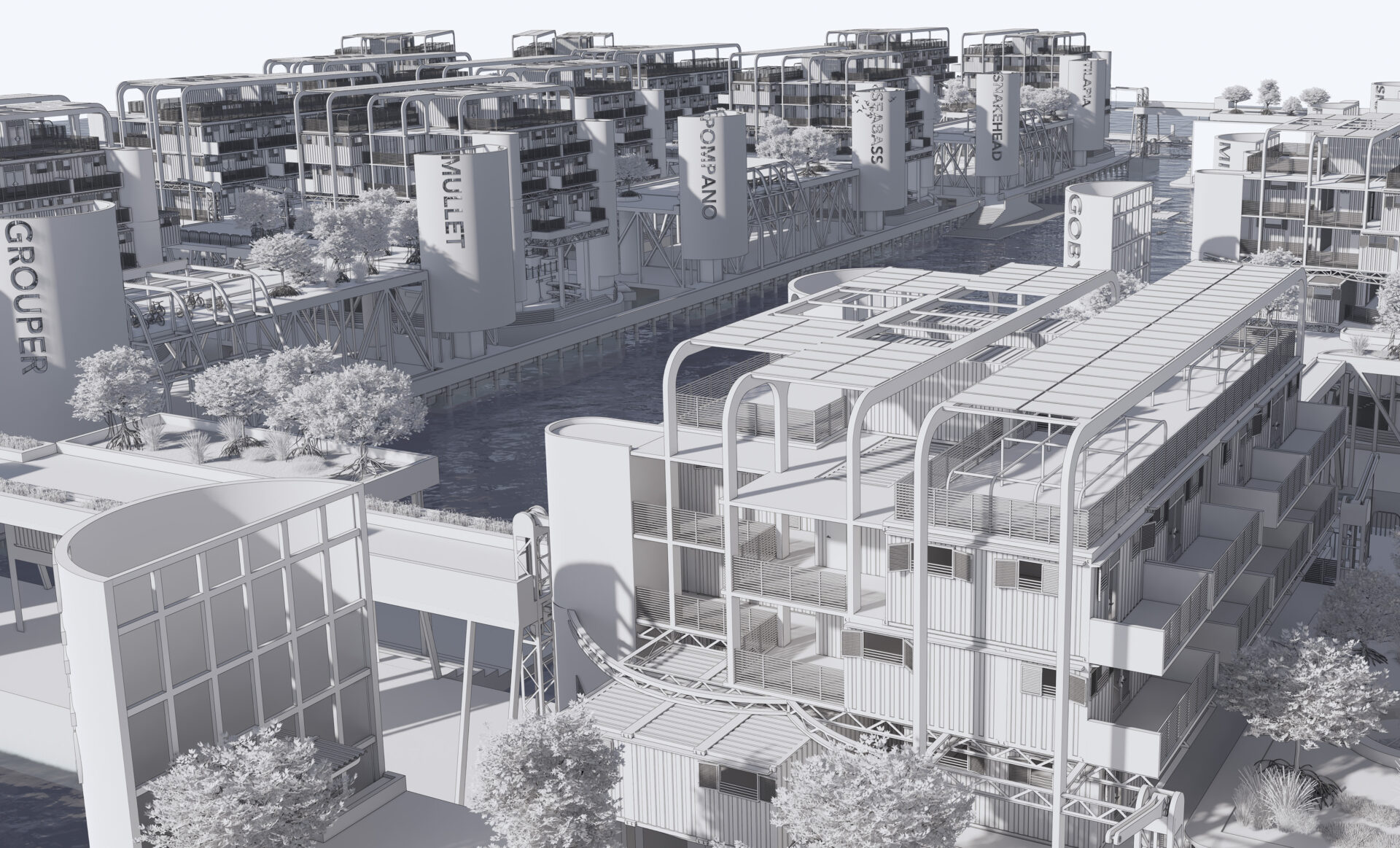
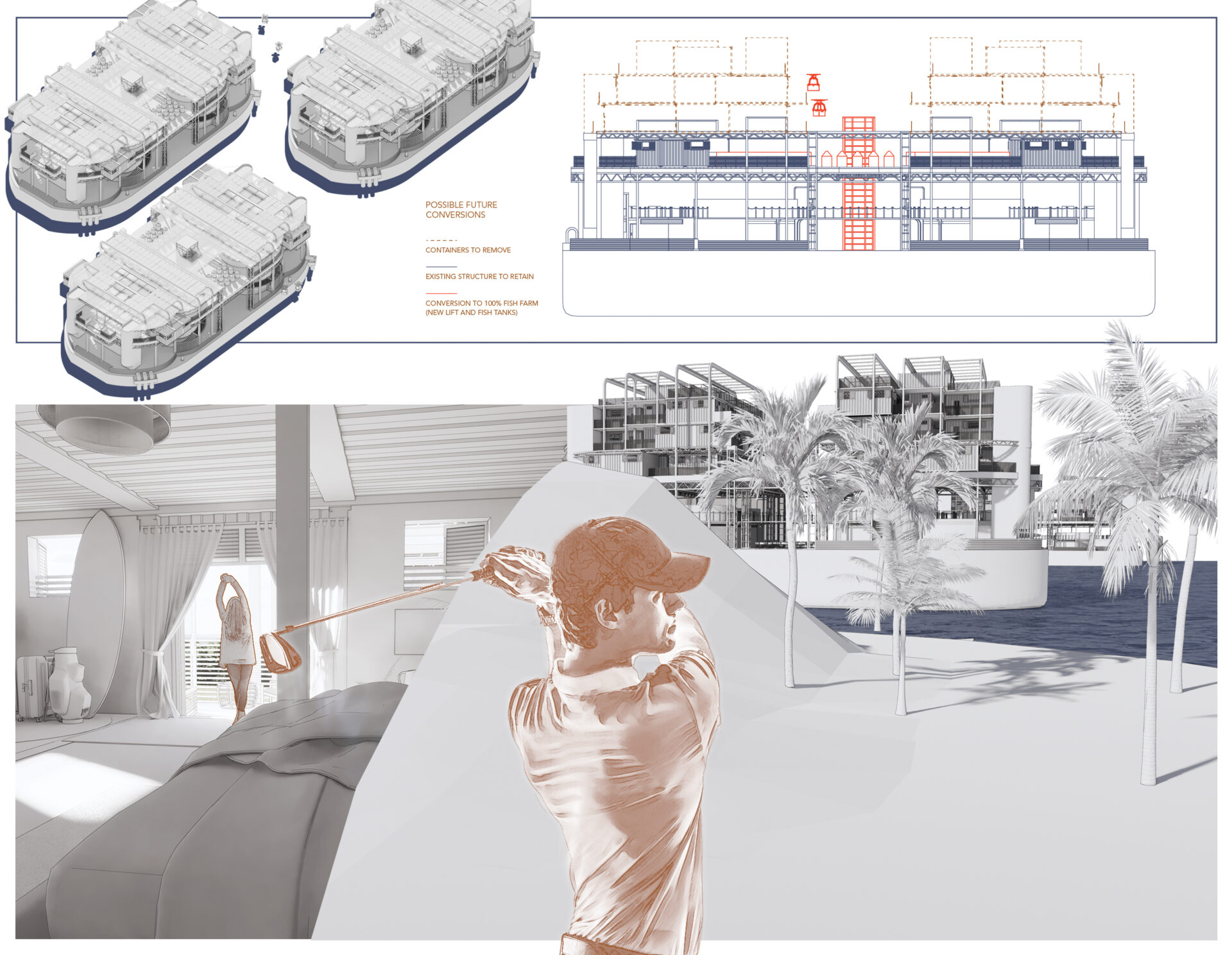
Supervisor's comments:
Singapore’s dependence on migrant workforce and high imports of food is inevitably also a land use issue. The transient nature of workers housing and the growing demand for seafood provide temporal considerations to this architectural exploration. The co-location of worker dormitory and a fish farm on a floating platform is a hybrid architecture that capitalized on coastal environment, mutualism as well as time-sharing arrangement of space to rethink better dwelling for the workers. The keystone of the thesis is about the cradle to cradle life cycle of each floating entity – as the worker demand decreases, more spaces will be transformed for fish farming or redeployed for other sea-based economic opportunities.
- Assoc. Prof. Cheah Kok Ming